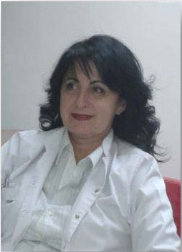

V Scientific Congress of Faculty of Dental Medicine - Plovdiv jointly with Regional College of Bulgarian Dental Association - Plovdiv
New dental restorative materials: research and practice.
Practitioners spent a lot of time replacing or performing resin restorations due to recurrent caries formation. Antibacterial-containing dental adhesives may have therapeutic effects, working as an additional source to reduce recurrent caries development in patients with highrisk of caries. Antibacterial properties in adhesive systems or composites are considered a viable option. Besides resin monomers, chemical initiators and organic solvents, dental adhesives may contain filler, fluoride, desensitizing or antimicrobial agents. The antibacterial properties of these agents and their effects on physical strength and long-term performance of dental restorations have been investigated. Commercially available resin-based composites/adhesive systems show antibacterial activity, this is normally only an adverse reaction of the components of the composites and the inhibitory effect against bacteria is unlikely to be reliable. According to examination by scanning electron microscope of the resin-based composite/ adhesive systems bond to dentin, the adhesive layer or hybrid layer is usually only 2 to 5 μmthick between the dentin wall and the bonding surface of resin-based composite restoration. The biggest challenge in the development of antibacterial dental adhesives is leakage at the interface between tooth surface and restorative material, leading to secondary caries. Bonding of dentin to the restoration has been shown to be even more challenging for successful restoration. Future developments should focus on dental adhesives with synergistic effects that will not only replace missing volume but also will have bioactive and therapeutic properties. Through multidisciplinary efforts, the development of antimicrobial dental adhesives promises tremendous advances.
Keywords: resin restorations, dental adhesives, hybrid layer, bioactive.

Prof Vera Stoyanovska, MD
Prof. Vera Stojanovska was born on 1961 in Skopje, where she completed hers primary and secondary education and graduated in 1986 at the Faculty of Dentistry. She was employed at the Clinic for ca riology and Endodontics at the Dental Clinics in Skopje in 1989. In 1995 she finished postgraduated specialization trai ning and became specialist in cariology and endodontics. In 1997 she completed the course at Vivadent-Shaan, and in 1998 she pa rticipated at the study tour in Sirona-Mannheim. For a juniorassistant was selected in 1997 at the Department of Cariology and Endodontics at the Faculty
of Dentistry in Skopje and she wa s elected as senior Assistant of the same Department in 2006 and 2009.
She had finished a study tour at the Faculty for dentistry in Nis Serbia in 2006, what was the part from her doctoral thesis. In order to improve her research for preparing her PhD In 2007, she joined the Dental School at the prestigious university in Heidelberg, Germany.
She completed her postgraduate studies and finished her PhD studies in 2011 with article
entitled: “Ultra-structural and physical assessmentof the shear bond strength between adhesive Interfaces of hard dental tissues and composites when using base layers“.
In the period 1996-2011 she was a mentor of several student article s presented at the national and international congresses of dentistry for students and professionals.
In 2014, she was elected as Assistant Professor at theFaculty of Dentistry at the European University - Republic of Macedonia, Skopje. She participated in many congresses in Macedonia and international congresses too, as presenter, lecturer, etc...
She is author and co-author of the five scientific books. She has been published about 120 scientific and professional articles, two with Impact factor and five with international participation.
back to V Scientific Congress of Faculty of Dental Medicine - Plovdiv jointly with Regional College of Bulgarian Dental Association - Plovdiv